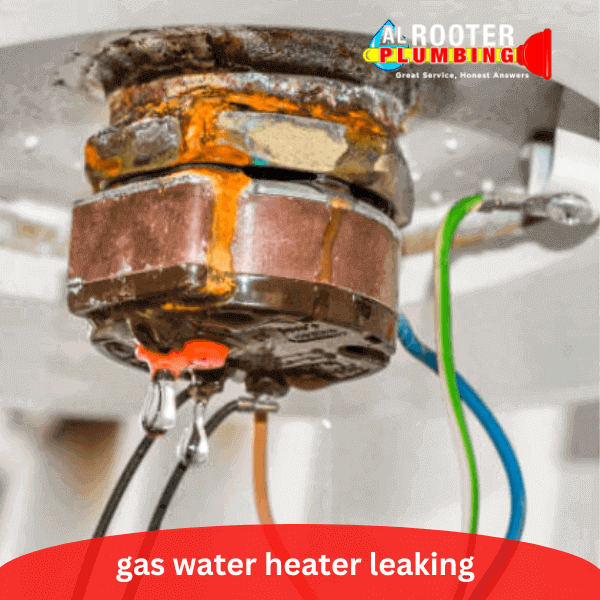A gas water heater is an essential appliance in many homes, providing hot water for various household activities.
However, like any other equipment, a gas water heater is prone to issues, one of the most common being leaks.
Understanding the potential reasons for a water heater leaking, how to inspect and diagnose a water heater leak, preventive measures, and what to do if your gas water heater is leaking are crucial for every homeowner.
This article will delve into these aspects to provide comprehensive insights into dealing with water heater leaking.
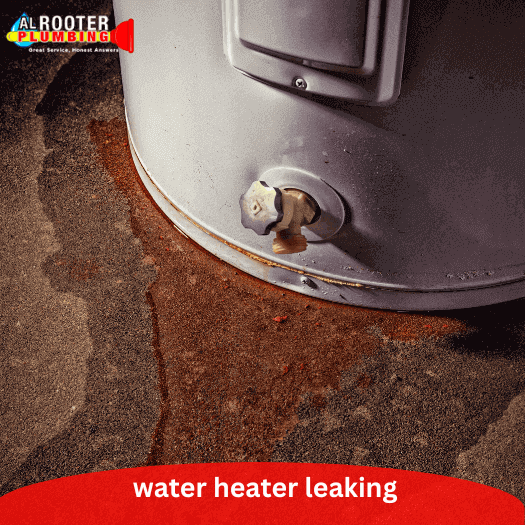
Gas water heater leaks can occur from different parts of the appliance, creating a variety of symptoms that signal potential issues.
Leaks from the top of the water heater are often associated with specific causes, while those from the bottom of the tank may indicate different problems.
1- Corrosion and Rust: Over time, corrosion can develop within the tank of a gas water heater, leading to small holes or cracks.
This corrosion weakens the metal, causing gas water heater leaking.
Rusting on the tank or its components is a common reason for gas water heater leaking.
2- Pressure Relief Valve Issues: The pressure relief valve is a safety feature that releases excess pressure from the tank.
If the valve is faulty or malfunctions, it can lead to water leakage.
Regular checking and replacement of the pressure relief valve are essential to prevent water heater leaking.
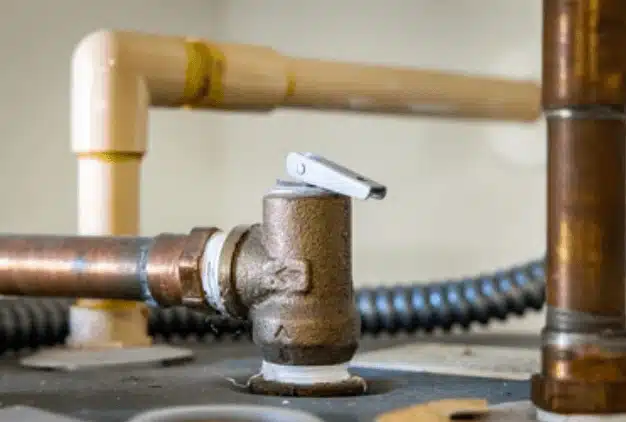
3- Loose or Damaged Drain Valve: The drain valve at the bottom of the water heater allows for flushing out sediment.
If this valve is loose, damaged, or not properly closed after flushing, it can result in gas water heater leaking from the tank.
4- Faulty Temperature and Pressure (T&P) Relief Valve: Similar to the pressure relief valve, the T&P relief valve is crucial for maintaining safe pressure levels.
If this valve malfunctions or becomes defective, it can cause water to leak from the water heater.
5- Condensation: In some cases, condensation can form on the exterior of the water heater.
While this is generally not a cause for concern, if the condensation is excessive or not draining properly, it can lead to water pooling around the base of the heater, mimicking a leak.
Regular water heater maintenance, inspections, and prompt repairs are essential to address these issues and prevent gas water heater leaks.
If you notice any signs of leakage, it’s recommended to consult a professional plumber to diagnose and resolve the problem.
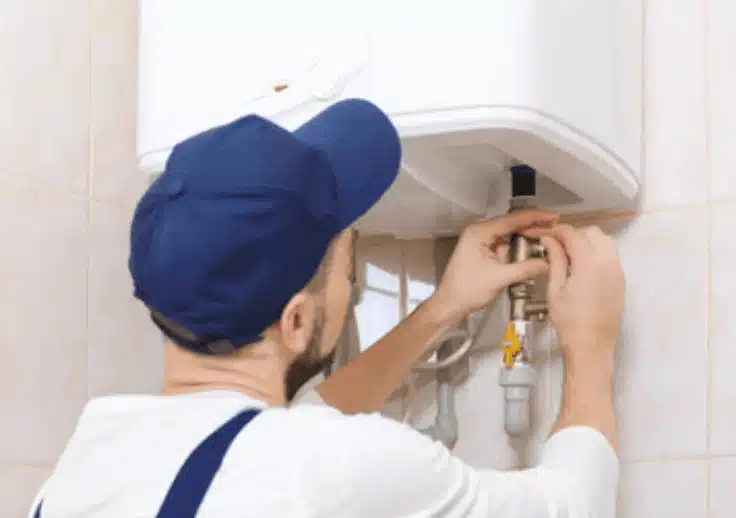
Leaking water from the top of the gas water heater can be a concerning symptom.
It may indicate issues with the pressure relief valve or the inlet and outlet pipes.
These leaks are often noticeable as water dripping from the top of the unit or pooling in the surrounding area.
On the other hand, water pooling around the bottom of the gas water heater is a clear sign of a gas water heater leaking from the tank itself.
This should not be ignored as it can lead to significant water damage and may be a result of corrosion or internal issues within the tank.
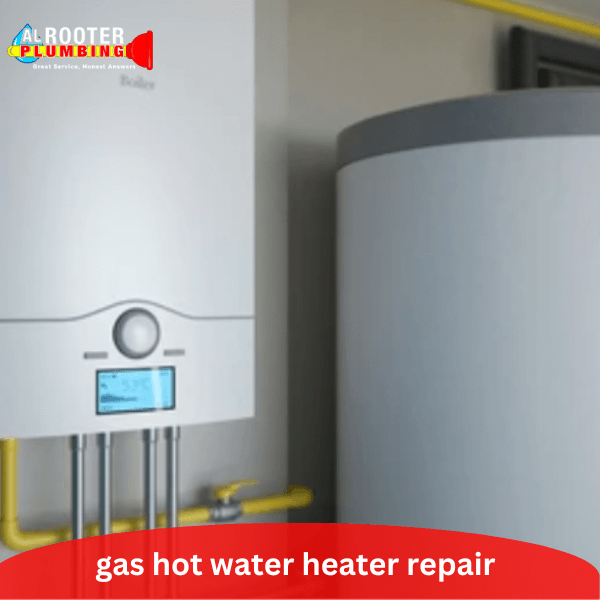
Several factors can contribute to water heater leaks, including high water pressure, a malfunctioning temperature and pressure relief valve, loose inlet or outlet connections, corrosion, and internal tank issues.
Identifying the specific cause is essential for effective resolution.
Inspecting a gas water heater leaking involves a systematic approach to identify the source and understand the extent of the issue.
It is essential to check different components and signs of water damage to diagnose the problem accurately.
Examining the water supply line for any signs of leakage is crucial.
A damaged or loose connection can lead to water leaking from the water heater, impacting its performance and causing water damage in the surrounding area.
The temperature and pressure relief valve, often known as the T&P valve, plays a vital role in preventing excessive pressure buildup in the water heater.
However, if this valve is faulty or damaged, it can lead to leaks.
Checking the T&P valve for potential issues is essential for diagnosing the leak accurately.
Water damage around the gas water heater or in the surrounding area can indicate a leak.
It’s important to inspect for any water stains, mold growth, or structural damage caused by the water heater leaking, as addressing these issues promptly is crucial.
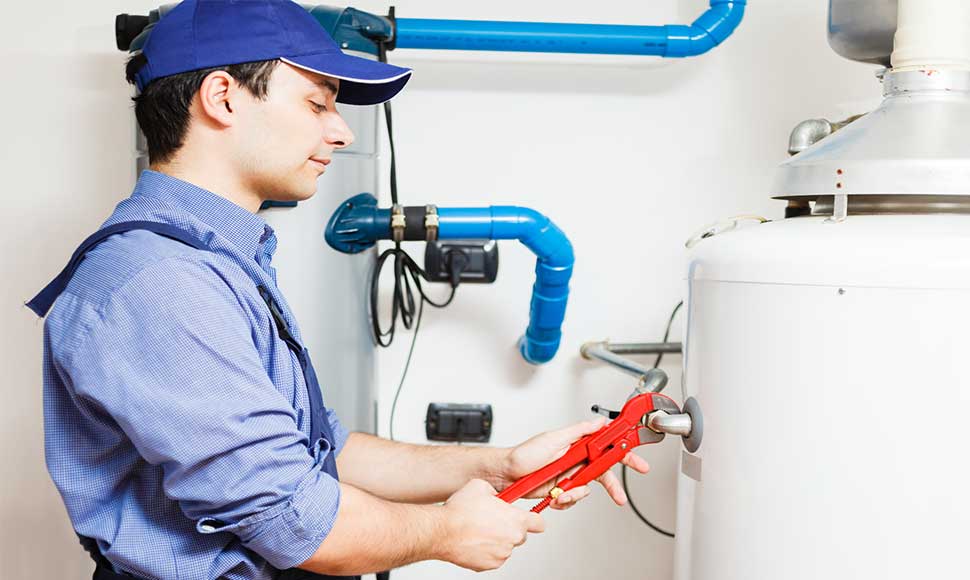
1- Regular Inspection and Maintenance: Al Rooter Plumbing Company recommends periodic inspections of your gas water heater to identify potential issues early on.
Check for any visible signs of water leaking, especially around the base or top of the heater.
Conduct routine maintenance tasks, such as draining the water heater to remove sediment buildup, which can contribute to leaks.
2- Monitor Temperature and Pressure Relief Valve (T&P Valve): The T&P valve, also known as the temperature and pressure relief valve, is a critical safety feature.
Al Rooter Plumbing advises checking the T&P valve for proper functioning.
If the valve is leaking water or showing signs of wear, it may need replacement to prevent water heater leaks.
3- Address Water Supply Issues: Ensure a stable water supply to your gas water heater.
Al Rooter Plumbing suggests checking the cold water supply and inspecting the water inlet and outlet pipes for leaks.
Fluctuations in water pressure or issues with the supply valve can contribute to a hot water heater leaking water.
4- Examine the Water Tank and Components: Al Rooter Plumbing Company recommends inspecting the entire water tank for any visible cracks or leaks, especially at the bottom.
5- Professional Water Heater Services: If you notice water leaking from your gas water heater, promptly contact Al Rooter Plumbing for professional water heater repair or replacement.
Al Rooter Plumbing Company specializes in gas and electric water heaters, ensuring efficient and reliable solutions for preventing and resolving leaks.
By following these tips from Al Rooter Plumbing Company, you can proactively prevent gas water heater leaks and maintain a reliable hot water supply in your home.

If you discover that your gas water heater is leaking, taking immediate action is essential to prevent further damage and ensure the safety of your home.
Knowing the steps to take can help in addressing the issue effectively.
1- Shutting off the gas supply
As a safety precaution, the gas supply to the water heater should be turned off if a leak is detected.
This helps prevent any potential gas-related hazards and allows for a safer environment while addressing the issue.
2- Draining the water heater tank
Draining the water heater tank can help in reducing the pressure and minimizing the leakage.
3- Seeking professional help for a new water heater installation
If the gas water heater continues to leak despite troubleshooting and initial interventions, seeking professional help for a new water heater installation is advisable.
Detecting a gas leak from a water heater is crucial for safety. Here are 5 symptoms to be aware of:
1- Unusual Smell: One of the most noticeable signs of a gas leak is the presence of a distinct odor.
Gas companies add a sulfur-like scent (often compared to rotten eggs) to natural gas to make it detectable.
2- Hissing or Whistling Sounds: Gas leaks can sometimes produce hissing or whistling sounds near the source of the gas water heater leaking.
If you hear any unusual noises coming from your gas water heater, it’s essential to investigate further and consider the possibility of a gas leak.
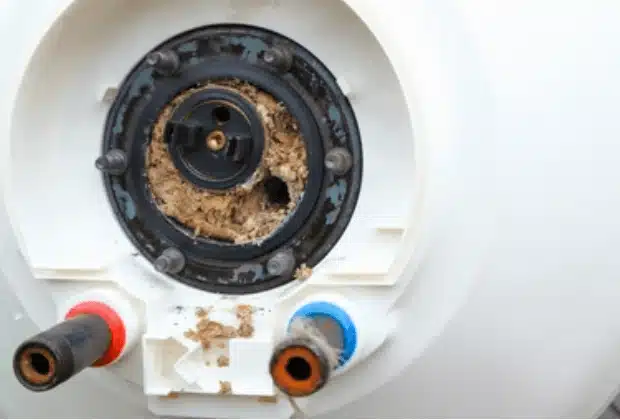
3- Physical Symptoms: Exposure to natural gas can cause physical symptoms such as dizziness, nausea, headaches, or fatigue.
If you or your family members experience these symptoms consistently and they improve when you leave the home, it may be an indication of a gas leak.
4- Dead Plants or Unexplained Health Issues: Gas leaks can affect indoor plants and contribute to unexplained health issues in residents.
If plants near the water heater appear unhealthy or if there’s an increase in respiratory problems among occupants, it could be a sign of a gas leak.
5- Visible Damage or Corrosion: Inspect your gas water heater regularly for any visible signs of damage or corrosion.
Rust or damage to the gas lines or connections may indicate a potential gas water heater leaking.
If you notice any issues, it’s essential to consult a professional to assess and address the problem.
If you suspect a gas leak from your water heater, prioritize safety.
Evacuate the area immediately, avoid using electrical appliances or switches, and contact your gas company and emergency services.
Gas leaks pose serious risks, and professional assistance is crucial to identify and resolve the issue safely.
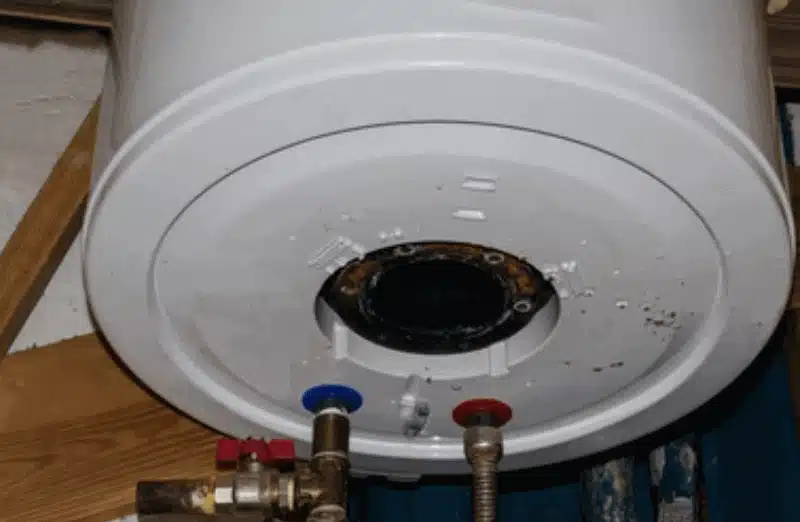
A gas water heater leaking from the bottom can be a serious issue, and there are several potential causes for this problem.
Here are 3 common reasons gas water heater leaking from bottom:
1- Tank Corrosion: Over time, the metal tank of a gas water heater can corrode, especially if the sacrificial anode rod—a component designed to attract corrosion—becomes depleted.
Corrosion weakens the tank’s structure, leading to small holes or cracks at the bottom.
This can result in water leaking from the bottom of the water heater.
2- Faulty Drain Valve: The drain valve at the bottom of the water heater is used for flushing out sediment.
If the valve is loose, damaged, or not properly closed after maintenance, it can cause gas water heater leaking from the bottom.
Regularly inspecting and properly maintaining the drain valve can help prevent leaks.
3- Internal Tank Failure: Internal failure of the tank, such as a rupture or a manufacturing defect, can lead to water heater leaking from the bottom.
This type of issue is more severe and typically requires professional intervention.
Internal tank failures may be more common in older water heaters, emphasizing the importance of regular inspections and timely replacements.
If you notice gas water heater leaking from the bottom, it’s crucial to address the issue promptly.
Turn off the gas and water supply to the heater, and consult a professional plumber or water heater technician to assess the situation.
A gas water heater leaking from top can be a concerning issue that requires prompt attention.
Here are several potential causes for a leak originating from the top of the water heater:
1- Faulty Temperature and Pressure Relief (T&P) Valve: The T&P valve is a safety feature designed to release excess pressure and temperature.
2- Loose or Damaged Water Connections: The water inlet and outlet connections at the top of the water heater may become loose or damaged over time.
3- Corrosion or Rust: Corrosion or rust on the top of the water heater, including the pipes and fittings, can lead to water heater leaking from top.
4- Cracks in the Tank or Heat Exchanger: Structural damage, such as cracks in the tank or heat exchanger, can allow water to escape.
5-Condensation Issues: In some cases, condensation on the exterior of the water heater may be mistaken for a leak.
Ensure that the leak is not simply condensation by wiping the surface dry and monitoring for the recurrence of water.
If you observe a gas water heater leaking from the top, it’s essential to turn off the gas and water supply to the unit and consult a professional plumber or technician
Dealing with specific scenarios and concerns related to gas water heater leaks requires a thorough understanding of the appliance and its components.
This includes identifying the source of the water heater leak, inspecting the pressure relief valve, and addressing issues with tankless water heaters.
1- Finding the source of the water heater leak
Identifying the exact location and cause of the water heater leak is essential for determining the appropriate repair or replacement solutions.
This may involve inspecting the tank, connections, valves, and surrounding areas for any signs of leakage
The pressure relief valve plays a critical role in maintaining the safe operation of the water heater.
Any signs of gas water heater leaking or malfunctions in this valve should be addressed promptly to prevent potential hazards and ensure the proper functioning of the appliance.
Tankless water heaters operate differently from traditional tank-style water heaters and can have specific causes of leaks.
These may include issues with the heating element, electrical connections, or the water flow.

